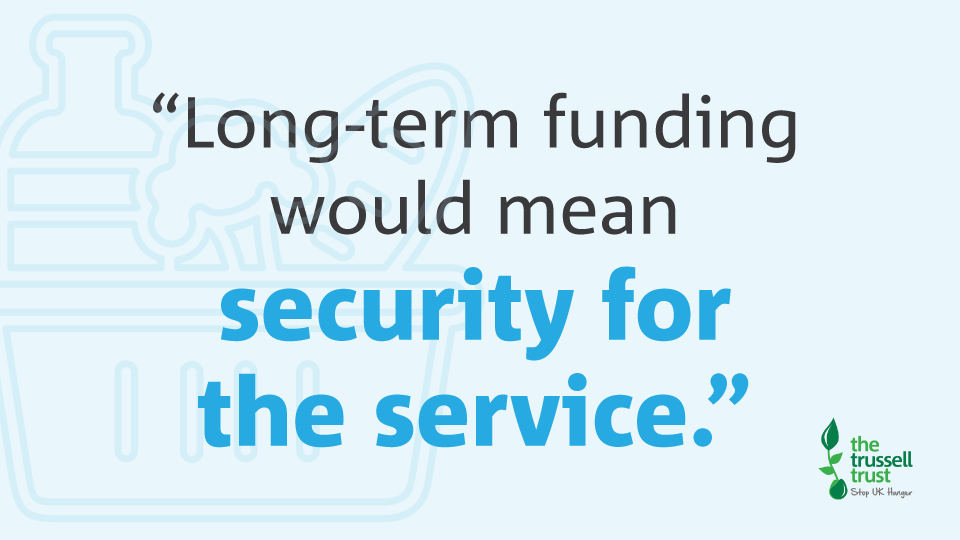Rory Weal, policy & public affairs manager:
The campaign led by Marcus Rashford to extend free school meals in England to cover the half term holidays, may have been rejected by the government – but it has not gone away. In fact, it has inspired a huge upsurge in generosity and demands for justice across the length and breadth of the country.
This recognition could not be more needed. At the Trussell Trust we support a network of 1,200 food banks centres across the UK, and we have long been aware of both the strength of the communities of this country and the dire economic circumstances too many families find themselves in.
Since the pandemic hit, the situation has got worse. Food banks in our network expect to be giving out six emergency food parcels a minute this winter. The contribution of volunteers and supporters is tireless, but the reality is no one should be forced to turn to charity to put food on the table.
That is why the public support for free school meals has been phenomenal and extending provision to cover holidays is so needed. But as Marcus Rashford has said free school meals can only ever be a ‘sticking plaster’, when the underlying issue is people not having enough money for essentials. The government has recognised this.
On Monday afternoon Boris Johnson told us all,
“We’re going to make sure that we have no children, no kids, no pupils in our country who go hungry this winter, certainly not as a result of any government inattention.”
And throughout the week, in dismissing calls for supporting children on free school meals during half term, despite doing so over the summer, government ministers have instead argued for other ways to get resources to people who need them most, such as through funding for local authorities and Universal Credit. They have pointed to the temporary £20 weekly rise in Universal Credit payments and a £63 million emergency grant given to councils.
What has been mentioned less often is that both these investments are hanging in the balance.
The government has not confirmed it will keep that £20 increase in Universal Credit next spring, and this rise still doesn’t cover people who haven’t moved over from our old benefits system. The £63 million investment in local welfare was announced in the summer, but the government was clear that it expected most of this money to have been spent by the end of October. This was clocked by Rashford on Wednesday who tweeted his surprise that this money had in fact largely been spent.
I’m hearing that the £63M funding provided to locals councils was meant to be spent by Oct 2nd…
If that is true (I don’t know that it is) then the effort local councils have put in to finding funding for food provision over Half Term is just incredible 👏🏾👏🏾
— Marcus Rashford (@MarcusRashford) October 27, 2020
Rashford is right to highlight this. Today the Trussell Trust has published new research which shows that while this £63 million has provided an important lifeline to those hardest hit by the crisis, there are real concerns among local authorities that they will not be able to continue to provide support unless further investment is made.
It’s no good for the government to justify a lack of action by referring to alternatives which are ending imminently – families are facing hunger every day. If the government believes there are better alternatives to free school meals, we need to see them now.
That means making the £20 uplift to Universal Credit permanent, extending it to people who are currently excluded and providing an immediate extension to the £63 million in local welfare for the duration of the present crisis.
The Marcus Rashford campaign has heralded an unprecedented upsurge in compassion and calls for justice for people hardest hit by this crisis. We must harness this power and this compassion, and push for long-term solutions. That is the only way we are going to end the need for food banks in the UK, and ensure every child and family gets what they need not just to survive but to thrive.



